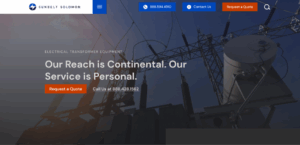Having snow removal insurance is important, considering the risks and dangers of snow removal and deicing. But what exactly is this coverage all about? This article will show you the things you need to know about snow removal insurance.
1. What Is Snow Removal Insurance?
Snow removal insurance can offer a wide variety of policies to protect contractors and their businesses. Because of their nature of work, snow removal contractors are usually exposed to many risks, which may include anything from third-party injuries to equipment. When it comes to the liabilities covered in the policy, it usually depends on the insurance provider or brokerage.
But snow removal insurance is different from commercial general liability insurance. In some cases, the latter policy doesn’t automatically cover completed operations and slips and falls after plowing.
2. Why Is Snow Removal Insurance Important?
In many cases, injuries or property damage may lead to costly expenses. And luckily, the right snow removal insurance policy can provide you with the right kind of protection from this.
With an insurance policy, you’d be able to protect your business. And in case of physical harm to your workers or damage to your customers’ property, your snow removal insurance can compensate for the needed expenses.
Besides that, those looking for a contractor or company prefer those who carry insurance. The reason is that if the provider doesn’t have any policy, the client will be held responsible for the accidents and alleged mishaps occurring because of the company’s fault.
3. How Much Does Snow Removal Insurance Cost?
Because of the high-risk nature of the job, the cost of snow removal insurance is relatively higher compared to other construction trades. When determining the overall cost, there are a number of factors you need to take into consideration, such as the following.
Nature Of Your Operations
What you do can greatly affect the overall cost of your policy. For example, if you’re just clearing away residential areas, the price would be lower than when you’re removing snows from public roadways or city streets.
Revenue
When you’re generating more income, it basically means more business. Usually, more business means more liability risks. Unfortunately, insurance companies utilize this to determine the price of the policy of their clients.
Years Of Service
How long have you been doing this kind of work? If you’re just new to the service, you’re more likely to pay a higher amount. It’s because the more inexperienced workers are, the more they’re believed to likely encounter accidents.
Number Of Workers
If other people are working for you, the more members you’re likely to have on your team. And the more workers you have, the higher your risk exposure is in the eyes of the insurance provider.
4. What Does Snow Removal Insurance Cover?
Your snow removal insurance should have coverage plans to ensure you’re protected when something happens to you, your team, or your equipment. Generally, snow removal insurance covers property damage, physical injury, personal injury, and slips and falls for which your business may be found liable. It’s not unusual for any of these incidents to occur in the course of your operations. And surely, you don’t want to be trapped without insurance coverage when the need arises.
Some providers also offer customizable snow removal insurance plans you can tailor to your individual needs. Here are other coverages you can add to your policy.
Equipment Breakdown
This coverage will offer protection for your equipment. Typically, it covers the expense for the repair or replacement of a piece of equipment that broke down because of mechanical or electrical problems. One good example of this is a snowplow that broke down because of blown hoses.
Tools and Equipment
This is another form of snow removal insurance coverage that would protect your equipment, accessories, and portable business tools against damage or loss (for example, due to theft). It also includes the property of other people in your care.
Non-owned And Hired Vehicle Coverage
This coverage is intended to protect the vehicle used in connection with your business that you don’t own. It also covers those you borrowed, leased, or rented.
Legal Expense Insurance
When a lawsuit is brought against you, legal expense insurance would give you access to unrestricted general advice on legal problems with the help of a skilled and experienced lawyer. In addition, this insurance would also cover legal fees incurred during the legal process.
Worker’s Compensation
Driving in snowplows during hazardous weather is risky for employees. But with a worker’s compensation policy, you’d be able to give your workers their needed protection when they become injured on the job.
Conclusion
Snow removal contractors or workers need to have snow removal insurance to avoid major problems in the future. So if you’re working in the industry and don’t have any policy yet, it’s best to get your snow removal insurance. After all, no one knows what lies ahead.



Responses